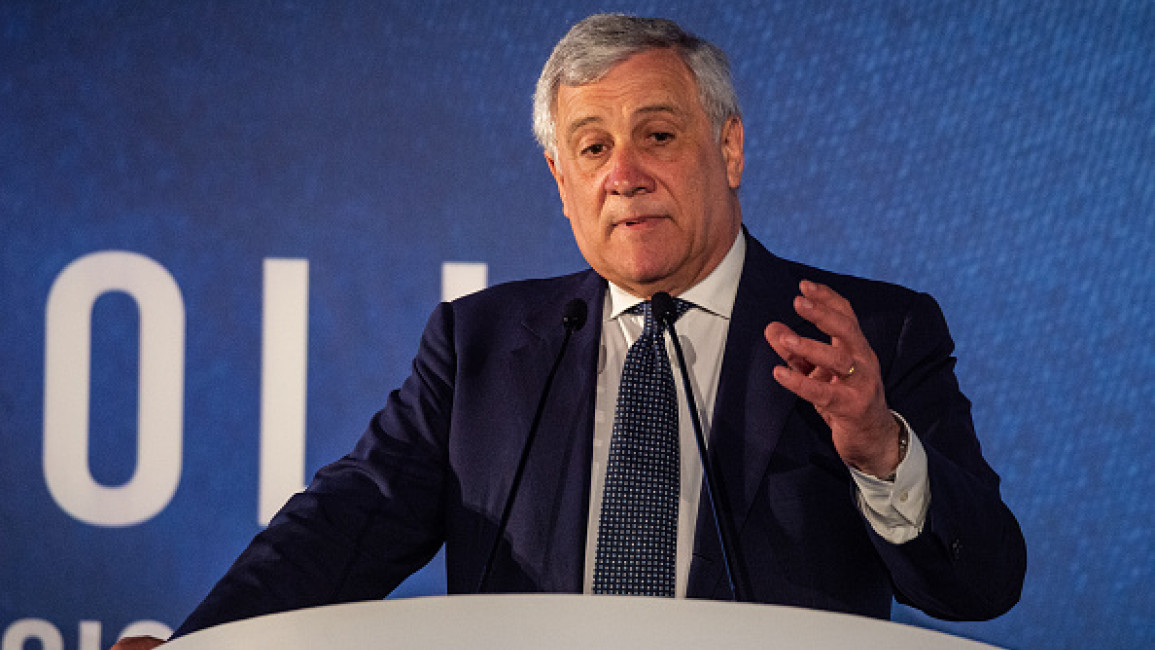Italy pushing IMF to help Tunisia and 'avoid instability', minister says
Italy wants the International Monetary Fund (IMF) to unblock a $1.9 billion loan to Tunisia, fearful that without the cash, the country will be destabilised, unleashing a new wave of migrants towards Europe, Foreign Minister Antonio Tajani said.
Tunisia's bailout talks with the IMF have been stalled for months, with the United States, amongst others, demanding far-reaching reforms from President Kais Saied to free up the cash.
Efforts to secure the bailout have been hampered by Tunisia's political upheavals since July 2021 when Saied seized most powers, shutting down parliament and moving to rule by decree.
Saied has never publicly backed an IMF deal, leaving donors worried he may reverse eventual reforms after the money arrives or blame them for any resulting economic pain.
However, Tajani has spoken to IMF Managing Director Kristalina Georgieva and urged her to show flexibility to stave off possible financial collapse.
"I reiterated the need for the Fund to intervene quickly in favour of Tunisian [stability] and growth with economic and financial support," Tajani told Reuters.
The minister has spoken about the problem with US Secretary of State Antony Blinken and raised the issue with counterparts in Slovenia and Croatia on Friday ahead of a forthcoming meeting of EU foreign ministers.
Prime Minister Giorgia Meloni is also "working the phones", one official said, warning that Italy faced an "invasion of migrants" in the coming months if Tunisia did not get the money.
Italy has taken in 20,046 boat migrants so far in 2023, a record number, putting the country on course to beat the all-time high for arrivals set in 2016, when 181,436 people reached land in a flotilla of flimsy boats.
According to unofficial United Nations data, 12,000 of those who have reached Italy this year set sail from Tunisia, against 1,300 in the same period of 2022 - an inversion of the previous pattern whereby Libya was the main launchpad for migrants.
"Uncontrolled irregular migration can only be reduced by improving the conditions of security and economic stability," Tajani said, adding that Italy was looking to boost training opportunities for Tunisians as an alternative to migration.
'Pushed Out'
However, a government official in Rome said the situation was complex, acknowledging that the majority of those leaving Tunisia this year were Africans from sub-Saharan countries who had decided to head to Europe as a result of a crackdown there on outsiders.
Last month, Saied said in comments widely criticised by rights groups and the African Union that undocumented sub-Saharan African immigration was a conspiracy aimed at changing Tunisia's demographic make-up. He ordered security forces to expel any migrants living in Tunisia illegally.
This was forcing people to flee the country, even if they had previously had no intention of making the dangerous crossing to Europe, a senior official with the United Nations said.
Of the arrivals this year to Italy, the top country of origin is Ivory Coast (3,223), followed by Guinea (2,906). The UN official said they had largely left from Tunisia. By comparison, 1,535 Tunisians had come to Italy so far this year.
"The stability and prosperity of Tunisia, with respect for fundamental rights and freedoms, are crucial for the stability of the entire Mediterranean region," Tajani said.
Meloni took office in October promising to reduce illegal migration flows, but numbers have only increased since then.
The issue has become much more sensitive after at least 86 migrants drowned in a shipwreck off southern Italy late last month, sparking accusations that not enough had been done to save them - a charge the government has denied.
(Reuters)



